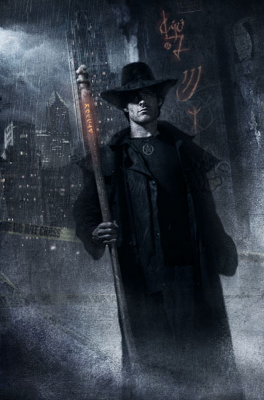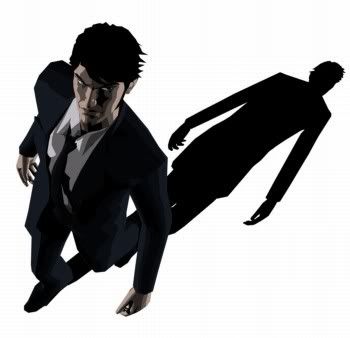
In the process of writing Cold Iron, which is still in progress, I’ve reached for inspiration and motivation from contemporaries in the field of supernatural detective mysteries. First and foremost and long overdue is my reading of Jim Butcher’s The Dresden Files, a series of novels about a Chicago-based wizard who operates a private investigation practice. Beyond the appeal of Harry Dresden himself is Butcher’s take on the supernatural world. The more I read these excellent books, the more I find Harry encountering situations in such a way that can actually inform the life of the reader. It could be a case of me reading too much into some works of genre fiction, but as far as I can tell, Harry’s got some lessons to teach, and not just about the proper care and use of one’s blasting rod.
Lesson: True power comes from within.
Book: Storm Front
One of the first and biggest uses of magic we see in the series takes place about two-thirds through the first book. A demon comes calling on Mister Dresden at home, and our hero is unfortunately not dressed for the occasion. In fact, he’s not dressed at all. His magical implements are not at hand and he needs to muster a defense lest a series of novels quickly become a short-lived one-shot. He taps into the elemental powers of the thunderstorm outside and his own emotional power to find a way to succeed. Without much preparation, without tools, without even clothes, Harry prevails. It’s not just a testament to the power of magic but also to that of the human spirit.
Lesson: Keep an open mind; things aren’t always what they seem.
Book: Fool Moon
Having introduced his version of vampires in Storm Front, the natural thing for Butcher to do in his second book is introduce werewolves. In pursuing a particularly nasty lycanthrope called a loup-garou, Harry goes down a bunch of blind alleys of reasoning and supposition. He always realizes his mistakes and checks himself afterwards, but it does lead him into some bad situations with far-reaching consequences. In later books we see Dresden taking a bit more time to discern what’s going on around him, and it saves his bacon more than once.
Lesson: Unlikely friends can be the best friends.
Book: Grave Peril
In hunting down poltergeists and investigating why they’re so violently prevalent all of a sudden, Harry teams up with a man named Michael Carpenter. Michael is a literal knight in shining armor, though he often wears jeans and a flannel shirt instead of the mail & tabard. He carries a holy sword, Amoracchius, and chides Harry for his habits and occasional disrespect for the Almighty – without being a dick about it. He’s a legitimately nice guy, and turns out to be one of Harry’s best and most trusted friends. You wouldn’t think this to be the case, given the tension that often exists between people who live in the Bible and those who gather the forces of the world unseen, but this sort of unlikely alliance yields a deep and abiding partnership that borders on bromance. Of course that could just be my take on it because I have a soft spot for Christian characters acting like actual Christians and not being Bible-thumping douchecanoes.
Lesson: Nature is both beautiful and fearsome; treat it with respect and wonder.
Book: Summer Knight
The very nature of the Fae is that of nature herself – breathtakingly gorgeous, timelessly alluring and very dangerous. Harry knows this from experience and, coupled with his growing skills of discernment, wades into what amounts to a turf war between camps of Fair Folk with open eyes and canny thoughts. He appreciates the wonders he sees but controls himself accordingly to get his job done. It shows his growth as a character and helps the audience realize that, even when it comes to pixies and water-clad nymphs, this world he protects us mundane folk from is an extremely deadly one.






